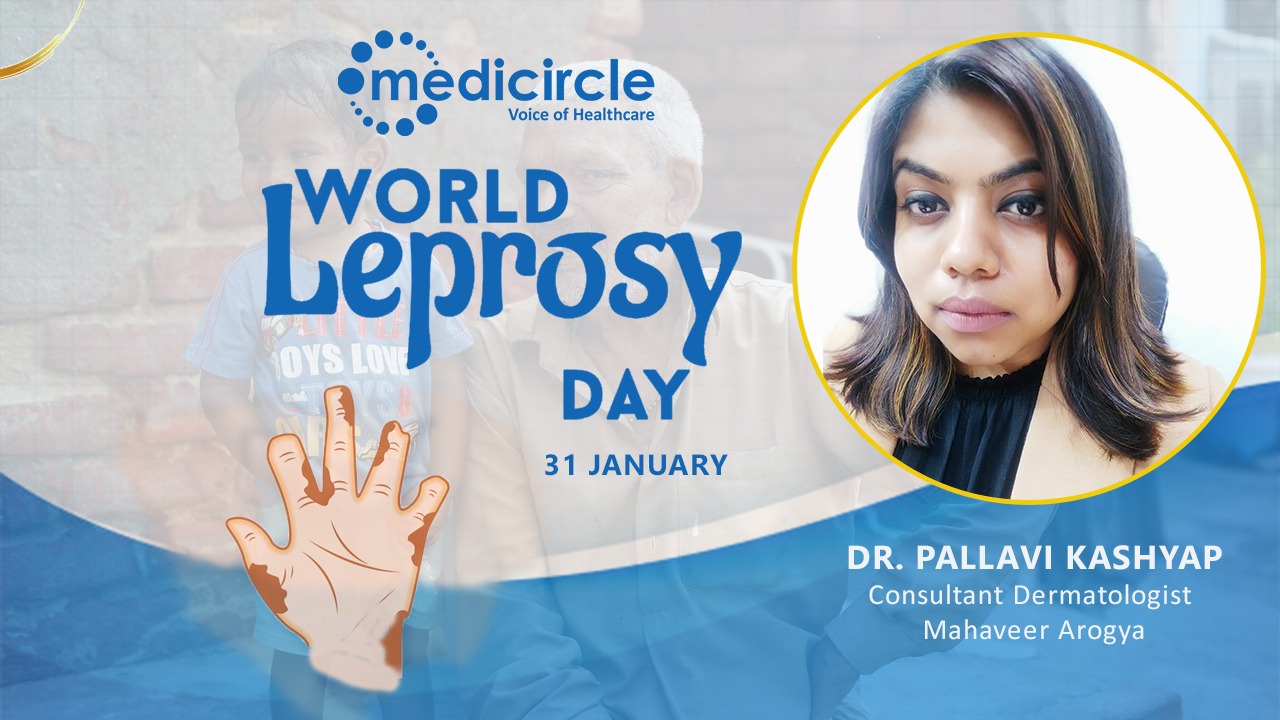Dr. Pallavi Kashyap is a practicing consultant leprologist, dermatologist and venereologist. She has done her thesis on Lepra Reactions and has treated patients with all kinds of Leprosy. She practices from her OPD in Patna.
Research Findings
Dr. Kashyap informs that in her thesis, she specifically worked for patients suffering from Lepra reaction of both type 1 and type 2, and found out that ”patients who are G6PD deficient are more prone for Lepra reactions and should not be given Dapsone as a part of MDT in their therapy.”
Why re-emergence of Leprosy in India
Dr. Kashyap lists down some causes of re-emergence of leprosy cases in India after it had got completely eradicated in the year 2005:
“Work of National Leprosy Eradication Programme (NLEP) is completely appreciable when it comes to leprosy eradication in India but the reasons of recurrence are the defaulter cases and lack of awareness amongst the patients to complete the therapy. The Indian MDT therapy where the Rifampicin is given 600mg once a month is also a problem as it is causing drug resistance and a once-monthly dose is not sufficient in most Leprosy Patients. Whereas, the CDC ( Center of disease control) therapy where RIfampicin is given 450mg daily along with Dapsone and Clofazimine in respective doses proves more effective and should be adopted,”says Dr. Kashyap
The stigma needs to be eradicated
Dr. Kashyap emphasizes:
“The basic idea behind leprosy eradication is the stigma attached to it. Unfortunately despite various efforts, the stigma still prevails hence more awareness and more priority has to be given to Leprosy eradication programmes. In Fact, the treating consultants should actually educate the patient attenders. The spread can also be stopped by screening the family members of the leprosy patients. The treatment should be easily available to the patients and most importantly, patients should be aware of the duration of the treatment as recurrence and lack of completion of the treatment is one of the major causes of spread and prevalence of Leprosy in our country, " says Dr. Kashyap.
BCG vaccine to children provides immunity from M.leprae
Dr. Kashyap points out that “leprosy vaccine is available but it is not included in the immunization schedule for children because BCG vaccination is already given to children which provide similar immunity and protection. Exposure to environmental mycobacteria with cross-reacting antigens to M.leprae could modify the immune response post-vaccination and alter the protective efficacy of the vaccines against leprosy. Most importantly, Leprosy can be completely treated with MDT if detected at the right time and if given for the right duration of time.”
(Edited by Amrita Priya)

 “More awareness and more priority has to be given to leprosy eradication programs to fight the stigma attached to it,†says Dr. Pallavi Kashyap, Consultant Leprologist.
“More awareness and more priority has to be given to leprosy eradication programs to fight the stigma attached to it,†says Dr. Pallavi Kashyap, Consultant Leprologist.










.jpeg)

.jpg)





.jpeg)

.jpg)





.png)



